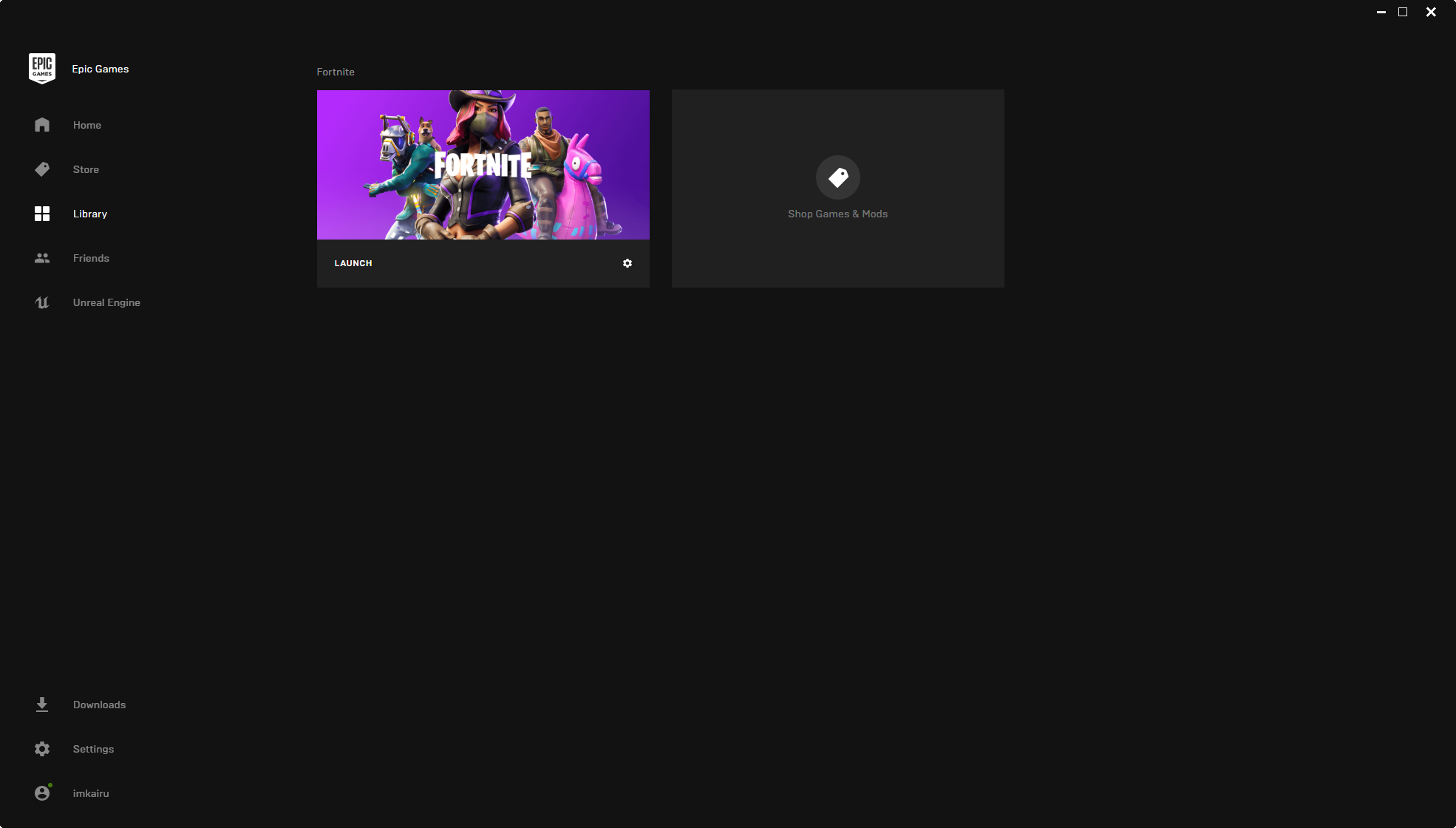

We performed a more limited suite of tests with this laptop, finding that battery life dipped again with the Epic Games Store, and not at all with Steam. (This doesn’t rule out some Microsoft-specific firmware bug that could affect both platforms, but we had to cut off the test somewhere.) As a check, we performed similar tests on Microsoft’s Ryzen-based Surface Laptop 3.
#Epic game launcher down pro
We also speculated that, for whatever reason, the battery-life issues could have been tied specifically to Intel’s 11th-gen Tiger Lake platform, the associated chipset, or just the Surface Pro tablet line. As you can see, there was an effect, though not as profound. Would battery life decrease proportionately with Steam, not Epic, running in the background? We tested while signed into Steam, with the app running quietly in our Windows taskbar. We uninstalled the Epic Games Store, then performed a similar test with Valve’s Steam store. That, fortunately, seemed to solve the problem, and battery life returned to the levels found in our “clean” PC. Finally, we installed the Epic Games Store, then formally exited out of the application. (The Epic store remained in our taskbar, hidden in a cluster of other apps.) Those results fell roughly in line with the battery-life scores we recorded when signed into the Epic store. We also tried loading the Epic Games Store, but not signing in. (We would expect that battery life would drop more significantly while the app was active, and it did.) On average, battery life dropped by 20 percent while the Epic Games Store app was signed in but the app was hidden in the taskbar- approximately two whole hours. Battery life dropped by 20 percent on average, reducing the tablet’s battery life by about two hours because of a single app. We performed multiple rundown tests on the “clean” Surface tablet as well as with the Epic Games Store signed in. On the Surface Pro 7+ running Intel’s 11th-gen Ice Lake processor, the differences were significant. The other tests were merely edge cases, simply to see if other behaviors made a difference.
#Epic game launcher down Pc
The first two tests-the clean PC versus signed in to the Epic Games Store-were what we were concerned with. Somewhat exasperated at this point, we reset the PC-and our battery test finally again generated a score consistent with our earlier results. And another, each requiring hours at a time. In the case of the Surface Pro 7+, the first two test runs provided consistent results the third did not. To be clear, the first two results were consistent. PCWorld has traditionally used a video rundown test, where we loop a video over and over until the battery expires. But we ran into an odd anomaly while testing: The battery life tests we ran didn’t deliver consistent results. Tablets are simply an extreme example.īecause of the incredible leap in graphics performance engendered by Intel’s new Iris Xe GPU, we wanted to test its capabilities in a few games. Who games on a tablet? Good question. As processor and GPU performance increases, more and more platforms are becoming hybrid productivity and gaming machines. Our discovery was a by-product of testing the Microsoft Surface Pro 7+ tablet, which uses a tablet-class Intel “Tiger Lake” Core processor inside. What we wanted to know was whether the Epic Games Store, even while hidden, was the culprit behind our lower battery life.

#Epic game launcher down windows 10
Normally, these taskbar icons are hidden on the Windows 10 Taskbar, and they’re easy to forget.


 0 kommentar(er)
0 kommentar(er)
